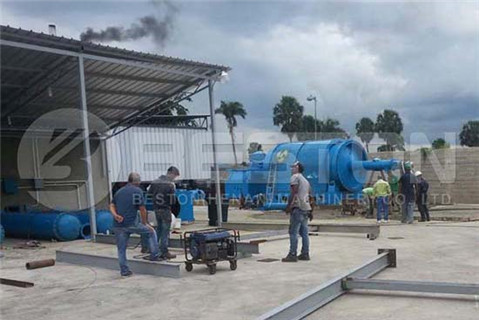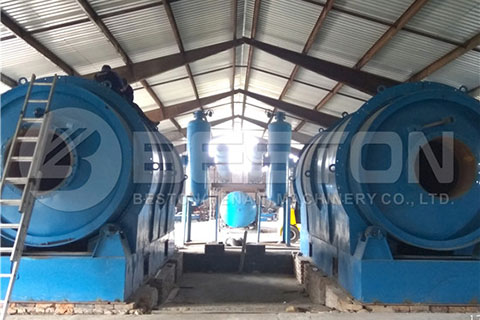Among other benefits, plastics help keep food fresher for longer, insulate homes, reduce the weight of cars, and keep medical supplies safe and sterile. Unfortunately, plastics create a disposal problem. About a third of manufactured plastic is used once and thrown away. As the United Nations notes, all the discarded plastic poses a threat to the “environment and human health.” Some of the waste plastic ends up either in landfills or as accumulated garbage in the world’s oceans.
Today, innovative technologies are helping manage the ‘plastics’ menace. Plastic to fuel plant is now harnessing the fuel content in waste plastics to produce fuel. They generate fuel through a process known as pyrolysis. The process involves thermally degrading waste plastic in the absence of oxygen. During pyrolysis, shredded plastic is melted in an oxygen-free chamber. Gas is separated out, and the remaining fuel is distilled and filtered.

Plastic to fuel conversion has been hailed as a great way of keeping waste plastic out of the waterways. Here are the notable environmental and economic advantages of using waste plastic to generate fuel.
1. Solving Waste Plastic Disposal Problems
2. Generating Cash From Trash
Recycling waste plastics into fuels by pyrolysis plant is good for the economy. Plastic to Fuel conversion plants make economic sense and can help to create economic growth. People can start viewing a waste product as a potential moneymaker, and this helps change perceptions. Instead of littering, people are more likely to sort and recycle waste plastic.

3. Resource Conservation
Turning discarded plastic into fuel fosters resource conservation. The process helps avoid over-reliance on conventional fuels.
4. Reducing Environmental Pollution
By using discarded plastics to produce fuel, plants can contribute to reducing the emissions of greenhouse gases. Plastic oil use helps to reduce the amount of fossil fuel used to generate energy. Typically, plastic to fuel conversion plants also reuse the gases produced during pyrolysis.
5. Production of a Cleaner Fuel
Plastic pyrolysis plant can produce a cleaner-burning fuel mainly because plastics have a low sulfur content. The approach offers a win-win situation where a waste product is recycled to help solve sulfur-related problems. In order to make a higher profit, you can also buy a waste oil distillation machine for help.
Until the world can produce environment-friendly plastic, we must continue re-using this important product. Filling landfills is not a sustainable solution. Plastic to Fuel conversion plants can help us to continue enjoying the benefits of plastic without hurting the environment. As a bonus, they generate revenue and create jobs.